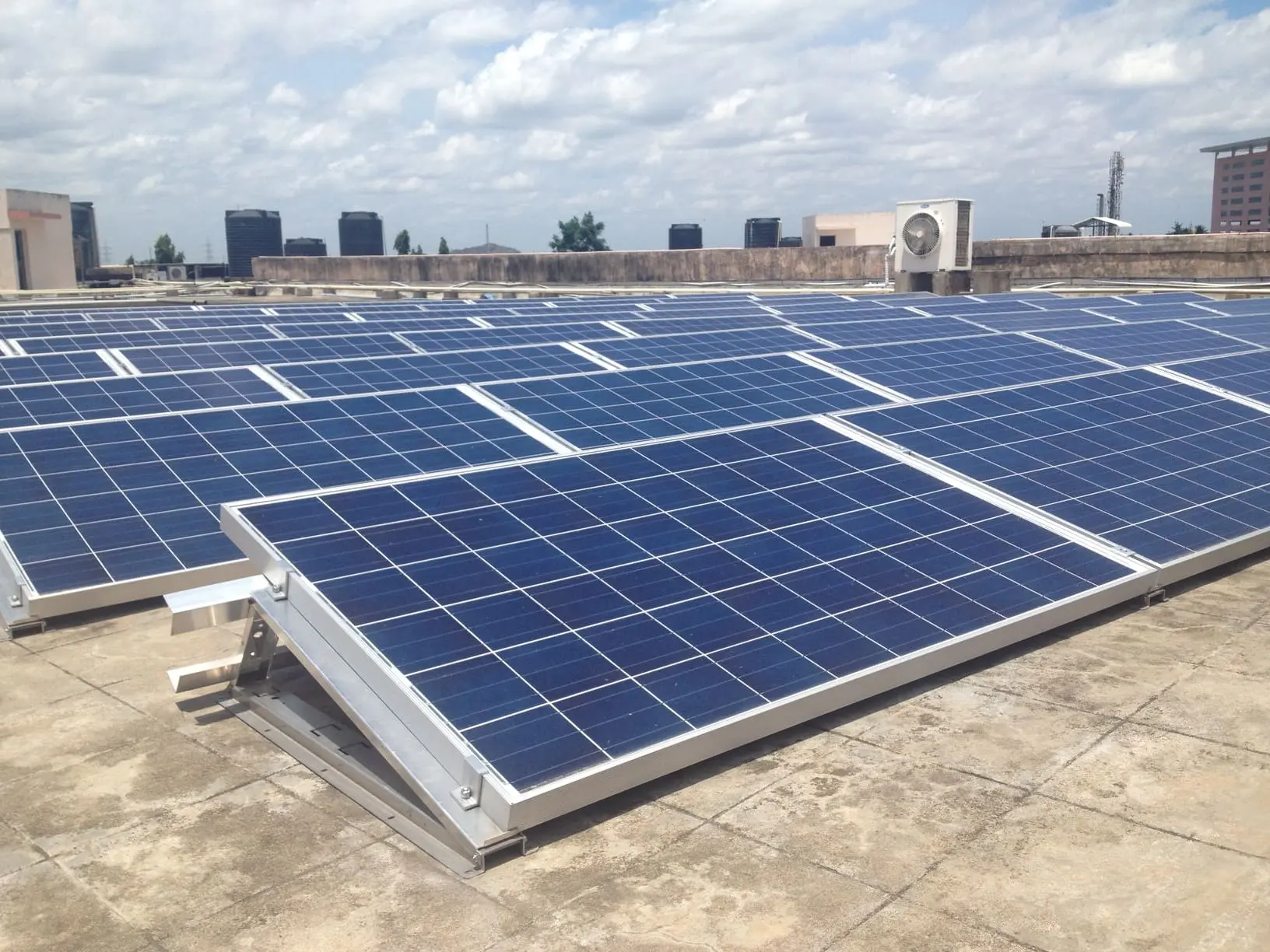We have just invested in solar panels on our roof! This decision marks a significant milestone in our commitment to sustainability. It will help us reduce reliance on traditional power sources while ensuring that our office operations can continue without interruption.
Addressing Power Cuts and Keeping Cool
Power failures and power cuts are unusual in Western countries. Unfortunately, we have had more than our fair share in recent years due to electricity shortages. Keeping computers running is relatively easy with UPS and batteries, but running the air conditioning is more challenging. Since it is much warmer here, we can’t develop high-quality software unless we can keep the office reasonably cool.
In 2012, we experienced about two hours of scheduled power cuts per day and one full day without power. Most other IT companies invest in diesel generators to manage power cuts, but before our investment in solar panels, we relied on UPSs with batteries. Our UPS solution provided up to 4–5 hours of backup, which was insufficient during longer outages, particularly in the warmer months. After about two hours without power, indoor temperatures can climb to 36°C, making it difficult to maintain a productive working environment.
Why We Chose Solar Panels Over Diesel Generators
We did not favour buying a diesel generator; instead, we invested in solar panels with battery backup on our roof. In addition to providing a cleaner energy source, solar technology aligns better with our environmental goals. Relying on diesel would have meant higher emissions and ongoing fuel costs, whereas solar offers a long-term, more sustainable option.
Redundancy: Staying Powered Throughout the Day
We are now more or less completely independent of external power during daylight hours and can continue business as usual, even during full-day power cuts. During power cuts, our conference room air conditioners will not operate, and we may raise the thermostat slightly to conserve energy. Luckily for us, we have sunny weather most days of the year. Even on cloudy days and during evenings, we can typically manage up to at least four hours without any significant inconvenience.
Additional Benefits of Solar Panels
Energy Independence
By generating our electricity during daylight hours, we are far less dependent on the local grid. This independence reduces our risk of unexpected outages and helps stabilise our electricity costs over time.Lower Operating Costs
Although solar installations require an initial investment, they can significantly save electricity bills, especially in regions with ample sunlight. Over time, this can offset some of the setup costs.Reduced Noise Pollution
Unlike diesel generators, solar panels operate silently. This is a significant advantage in office settings where noise can disrupt work and concentration.
Return on Investment (ROI)
Was it a good investment? Calculating ROI purely from a short-term cost perspective will take several years to recoup the expense. Although solar panels come with a 25-year warranty, batteries must be replaced approximately every five years, which adds to the ongoing costs. However, the real value lies in our ability to continue working even during extended power cuts—an aspect that no diesel generator could fully address without incurring significant fuel costs.
We were also required to upgrade our air conditioners to inverter-compatible models, which has had the added benefit of reducing our overall electricity consumption. Factoring in these gains, we believe it is an investment that will pay off over the years, both financially and in terms of operational stability.
Positive Environmental Impact
Even though our state (Tamil Nadu) is an Indian leader in wind, solar, and nuclear power, a significant part of India’s electricity is still generated from thermal power stations that burn coal. By using solar panels, we are tapping into a renewable energy source that dramatically cuts down our carbon footprint. Our choice reflects our commitment to being an ethical and environmentally friendly company. As a result, our reliance on fossil fuels has decreased, contributing to cleaner air and a healthier planet.
Conclusion
Investing in solar panels has proven to be a forward-thinking solution that meets our need for a stable power supply while significantly reducing our environmental impact. Despite the initial costs and the periodic battery replacements, the ability to work uninterrupted during lengthy power cuts is invaluable. In the long term, our decision to opt for a renewable energy source instead of traditional diesel generators will continue to bring financial and ethical returns. By reducing our carbon emissions and operating sustainably, we stay true to our core values and set an example for other businesses looking to invest in cleaner, more reliable power solutions.
